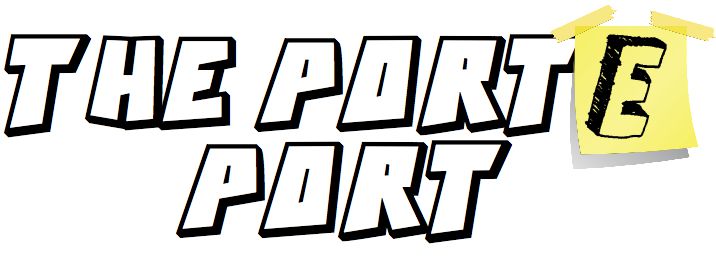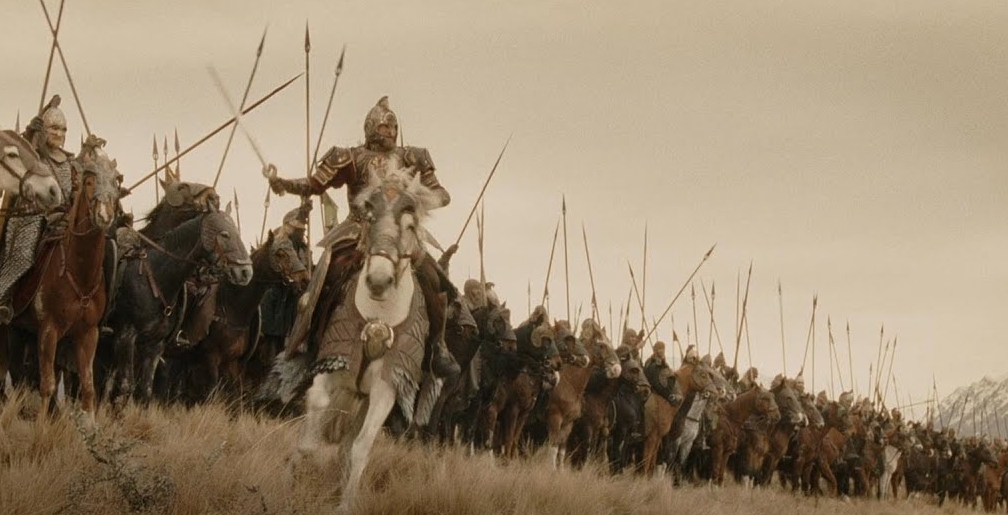Tolkien Tuesday: Writing Characters in Grief
Grief needs to be felt, not seen.
Some over the top scene of someone realizing a loved one has been ripped away is something that draws to the action of the grief, not the feeling.
Grief can come out in a multitude of ways. I worked at a mortuary for a time, and I've seen some pretty interesting things. (Like a puppet giving a eulogy).
Yup.
In my own quest to find the right way to have an audience feel that grief, I turn back to J.R.R. Tolkien. As much as there are some great examples in the book, like Sam thinking Shelob has killed Frodo, I turn, this time, to the movies.
Let's dive into a couple scenes that make me tear up more the older I get. I'm a big ol' softy these days, apparently.
Then, we are going to see how to apply that kind of writing to your story.
What do you mean we are out of the sliced cheese?
Theoden is the King of Rohan, and he is being used by Saruman like an experienced Risk player forming an "alliance" with a newbie. Once the spell of darkness and corruption is broken by Gandalf flashing the poor guy, a few things happen.
First, he realizes he has been the puppet of the very wizard that has been destroying his kingdom.
Then, adding insult to injury, the emissary for this wizard is the greasiest man in Middle Earth.
Worst of all, Theoden's forces are scattered to the four corners of Rohan, and his son is dead.
The book and movie differ here in some key ways. Please don't rage at me diehard book purists, but the movie does it better here.
The Two Towers movie, in general, is an incredible adaptation of a book that has some really crazy pacing issues for how much I love it.
The movie builds to the Helm's Deep moment while diving into Theoden's character in a way the books don't. The slow plot escalation and focus on characterization is what makes the battle so memorable.
We care about the people in it, making every scene potential for disaster.
The movie especially shines when Theoden realizes his son is dead.
In the books, this has all happened before the narrative even gets to the Three Hunters arriving in Edoras. It's clear that Theoden is grieving, but the action doesn't focus on it. There's no burial scene before the big battle, and we don't get that perfect moment of grief.
Gandalf tries to comfort the King of Rohan while the little flowers that adorn all Theoden’s ancestors are now placed on the tomb of his son. There's some heartfelt dialogue about having to live in a world where the young perish and the old linger.
The weight of his son's death sits heavy on Theoden for the rest of the movie.
Bernard Hill, who plays Theoden, gives a genuine portrayal of a man weeping over the loss of his son. It's brutal. He isn't screaming at the heavens, he doesn't start kicking at the dirt, his tears are painfully silent.
Grief is a central pillar to who a character is. When we get to see that grief, and feel what the characters feel, it makes it all the more real. This helps to continue to develop the character.
Instead of the noble lord trying to sort out what has happened to Rohan while he was in his darkness, like in the book, we see a Theoden determined to set the record straight, willing to die, maybe even wanting to die, for Rohan.
His duty becomes everything for him.
Duty and finally using that Public Speaking degree
Rulers are supposed to be wise and strong, especially from Tolkien's point of view. In the movie, this becomes a more implied facade. There are layers to the character that go deeper.
That grief is the key to understanding why Theoden does what he does, bringing everyone to Helm's Deep. It also explains why he would be that much more protective of his niece, Eowyn.
Grief doesn't always have to be tears either.
At Helm's Deep, there is a moment so subtle that I missed it over and over. The power of the dialogue remains, but it took me until my last viewing to catch what was really going on.
The great meme-able moment, "Where was Gondor..." has become an internet joke staple. Where was Gondor when the last of the hummus was eaten? Where was Gondor when I didn't realize we were out of toilet paper?
Yet, this scene holds the key to Theoden's character. There is a tiny reminder of his grief.
(The real relevant stuff starts at the 0:50 second mark)
Aragorn is trying to get Theoden to stop and think for a moment. He mistakes the actions of the King of Rohan for an over the top optimist rallying his troops for a sure victory.
Theoden suddenly gets super real.
He is still a man grieving over the destruction of his people. They have one chance now to hold out as long as they can, and he knows they probably won't win.
What is he supposed to do, though? He is working with what he has, and Aragorn needs to stand by his side to make a stand worthy of being remembered.
Aragorn then tells Theoden to call for aid from Gondor. The two kingdoms are supposedly allies, but neither has made any attempts to help each other yet.
Theoden is more than happy to tell Aragorn all his frustration with Gondor. Where was Gondor when all these terrible things were happening to Rohan? Then Theoden gets to a phrase he can't finish:
“Where was Gon...”
When this is said, he pauses, lost in himself.
What was he going to say? I would be willing to put money on: "Where was Gondor when my son was cut down?"
There's something deeper, though.
Where was Theoden when his son was cut down?
There's guilt there too. Subtle, not even said in dialogue. These complex emotions are felt rather than articulated.
If you hone in on the exchange and keep in mind what has already been established, there's something so much more than a king frustrated with his neighboring ally.
It also portrays another point: real grief is hiding just under the surface, ready to rear its head at any moment.
Through all his duty, heroism, and leadership, Theoden is ultimately a man in grief. It's right there underneath it all. Get him emotional, and it will probably circle back around to his son. That's realistic grief.
Loss is a powerful moment for all of us.
Inevitably we all must face that hard emotion. Loved ones that are long gone, friends that have drifted apart, and children that are unrecognizable to their parents. Sorrow runs bold and free when we lose someone dear to us, physically or emotionally.
To get that feeling to come out and connect to a character is a subtle art.
Get into the head of your characters. What’s going on in the back of their minds as they make choices.
Grief can come out in their decisions rather than tears.
Sometimes the things that aren't said speak loudest.
Our favorite movies and books reveal some fantastic storytelling techniques. Let’s use our inspiration and write better stories! Sign up below and get geeky writing tips direct.










